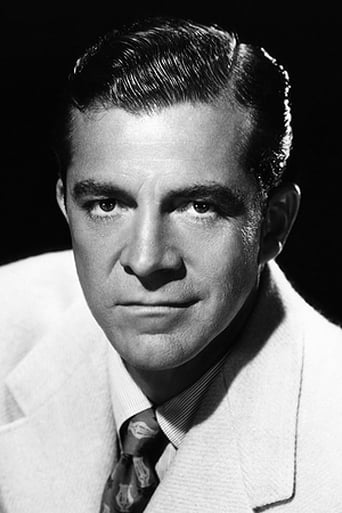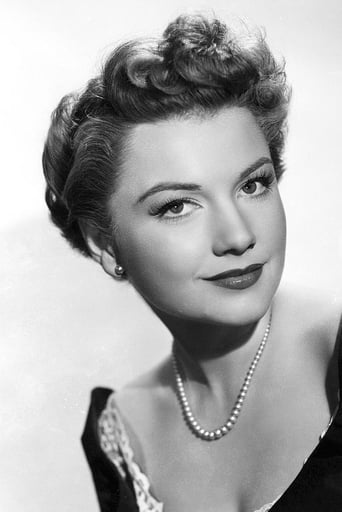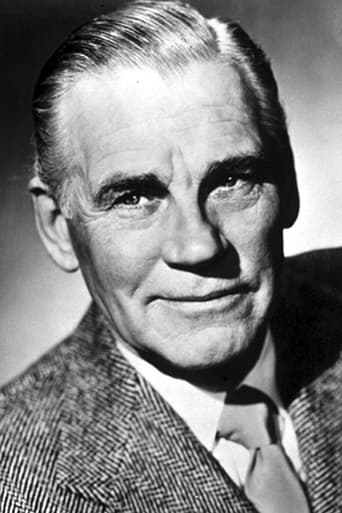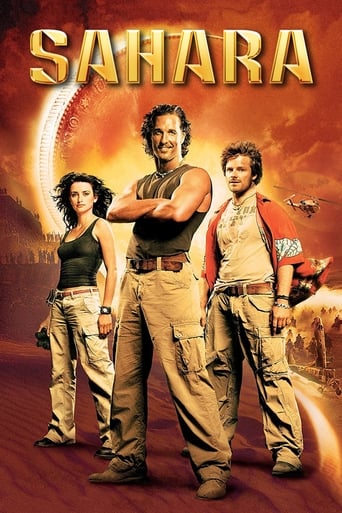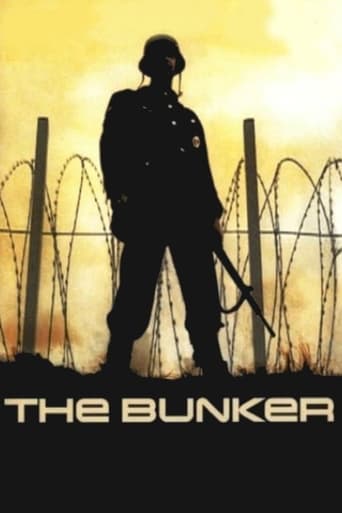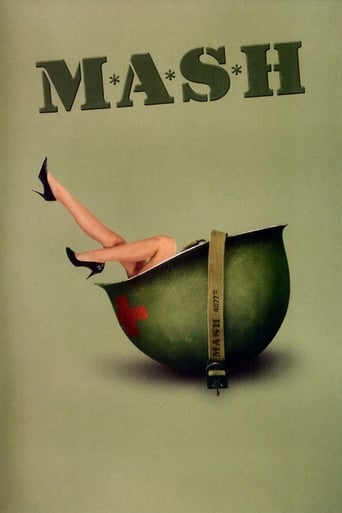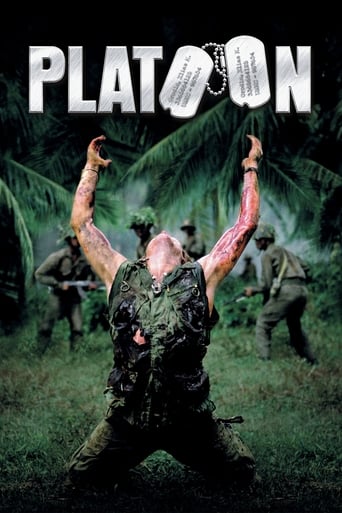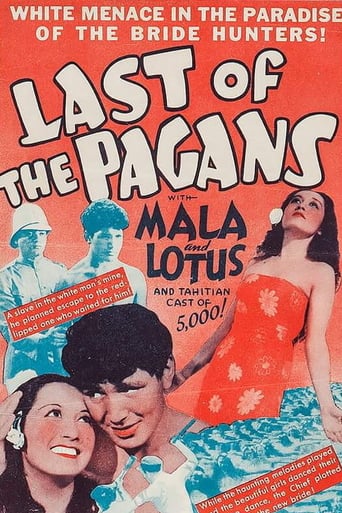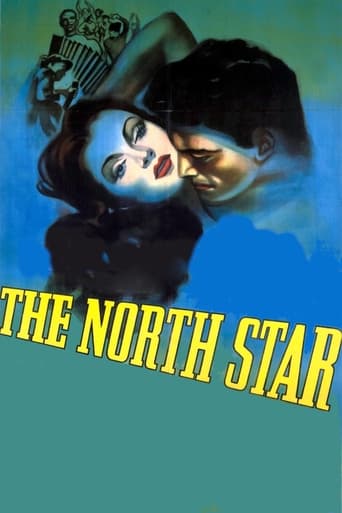
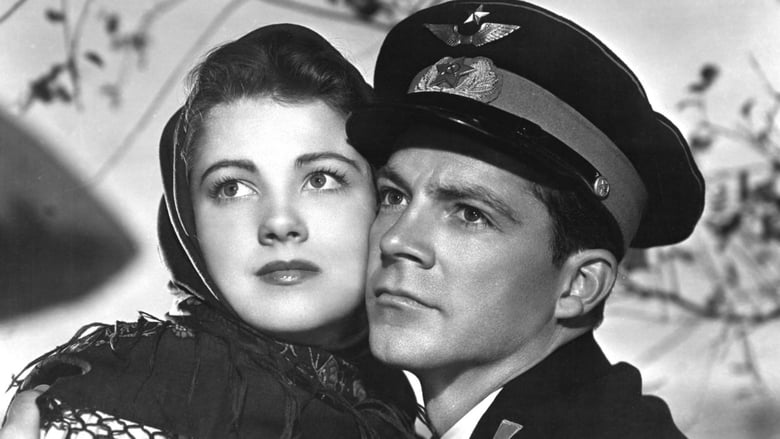
The North Star (1943)
A Ukrainian village must suddenly contend with the Nazi invasion of June 1941. Later re-edited and released as "Armored Attack."
Watch Trailer
Cast


Similar titles
Reviews
I understand why it was made -- you gotta convince gullible farm boys in Iowa to get themselves shot in the head or lose a leg to a grenade or contract syphilis from a Paris h00ker. In reality the Hun were rank amateurs compared to the Soviet Empire when it came to making Ukrainians dead. I guarantee there were no happy villagers breaking up their dance routines to wage guerrilla warfare against the Germans. In the fight between Russia and Germany there were no good guys, but millions of innocent, dead civvies. This movie does serve a purpose, however. It reminds us that the government was right to be concerned about commies in the entertainment industry. Especially now that it has has been conclusively shown that Washington and Hollywood were rife with commie infiltrators. Frankly, I'm surprised everybody involved in this movie wasn't blacklisted. Or worse.
My enemy's enemy may not always be my friend, but after the Japanese attack on Pearl Harbor in 1941 the United States government decided, on the basis of the "my enemy's enemy" principle, to hail Joseph Stalin as a trusted ally and brother-in-arms. The effects of this were soon felt in Hollywood. Tinseltown had long had its own colony of Communist sympathisers, but owing to the disdain for Communism felt both by film moguls and by the great majority of the wider American population they had never had much opportunity to use the cinema to make propaganda for their cause. Even a film like "Blockade", written by the avowed Communist John Howard Lawson about the Spanish Civil War, is so confused in its politics that it is difficult to tell whether it is pro-Republican or pro-Franco. The US-Soviet alliance, however, allowed Uncle Joe's amen corner to come out in their true colours with the full blessing of the American authorities. "The North Star ", therefore is that rare beast, a Soviet propaganda film made in the USA. ("Mission to Moscow" and "Song of Russia" from around the same period are other examples). The script was written by another Communist sympathiser, Lillian Hellman, and the film was directed by Lewis Milestone, best known for the anti-war epic "All Quiet on the Western Front", but who showed here that he could also turn his hand to pro-war epics. The story tells of a Soviet village which is overrun by the Nazi invaders but whose inhabitants fight back through guerrilla tactics. The opening scenes show a most idealised vision of the life back in the USSR. Although there are a few modern touches such as tractors, telegraph poles and Red Army uniforms, just to let us know that it is 1941 and not 1812, the overall impression is of a sort of timeless Ye Olde Merrie Russia, a place of thatched cottages inhabited by happy smiling peasants, of horse-drawn carts, of pretty girls in traditional folk-costumes with flowers in their hair, of handsome young men singing and accompanying themselves on the balalaika. Actually, the village of North Star is not in Russia proper at all but in the Ukraine. Indeed, given that the village is captured by the Germans in the first few hours of Operation Barbarossa, it is presumably in the westernmost part of the Ukraine- that is to say in territory which was Polish until 1939 and only became Soviet as a result of the Molotov-Ribbentrop Pact. Needless to say, that notorious piece of double-dealing and the Soviet invasion of eastern Poland in 1939 are not mentioned anywhere in this film. There are also a few other things which Ms Hellmann neglects to mention:-1. Communism. The words "Communist" and "Communism" are never heard. The word "Socialist" only appears twice, on both occasion as part of the formula "Union of Soviet Socialist Republics". 2. Stalin. Old Uncle Joe is conspicuous by his absence. 3. The forced collectivisation of Soviet farmland in the early thirties and the ensuing famine, or Holodomor, which killed several million Ukrainians. The film gives the impression that the peasants still own their own land. Of course, if the people of North Star were still under Polish rule at this period they would have been spared this ordeal, but would have been well aware of what was happening on the other side of the border. 4. The Great Purges of the late thirties. 5. The fact that in many parts of the western Soviet Union- especially those parts not inhabited by ethnic Russians- the German invaders were initially actually welcomed as liberators from Stalinist rule. The film stars some well-known actors- Anne Baxter, Dana Andrews, Walter Huston, Walter Brennan and Farley Granger, whose first film this was. (Huston achieved the unenviable double of appearing both in this film and in "Mission to Moscow"). It does not, however, contain any acting of note. None of the characters are shown as rounded individuals, but are simply personifications of Absolute Good (Soviets) or Absolute Evil. (Germans).The following year, Andrews and Granger were again to act together in a propaganda film, "The Purple Heart" about the war in the Pacific. This latter film has been much criticised for its allegedly racist treatment of Japanese characters, but "The North Star" has not received similar criticism for its equally racist treatment of the Germans. It was, of course, criticised during the Cold War period, but this criticism centred upon its whitewashing of Communist rule in the USSR and not upon its stereotypical portrayal of the Germans as Beastly Huns. It would seem that in Hollywood it is OK to be racist about certain races but not others. Particularly offensive is the portrayal of the German doctor played by Erich von Stroheim who is sceptical about Nazism but is just as willing to commit acts of brutality as any Nazi. (His surname is von Harden- presumably chosen for its closeness to the English word "hard"). The implication is that all Germans- not just the Nazi leadership- are evil. Not all wartime propaganda films were bad. Some were very good pieces of film-making and one or two, such as "Casablanca" or "Went the Day Well?" deserve the label "great". "The North Star" is not a film of this nature. It is a lying, bigoted piece of propaganda, every bit as dishonest as the sort of films which might have been shown in Stalin's own cinemas. Watching it I realised what Mary McCarthy meant when she said of Hellmann that "Every word she writes is a lie, including 'and' and 'the'". 2/10
The picture is set during Nazi invasion, on June 22, 1941, the Fuehrer sent his war machine crashing across the frontiers of the USSR , unleashing a furious Bltzkrieg. The Fuehrer,-known his hatred for Bolshevism-, described the assault on Russia as a crusade against communism, but he obviously was motived by a need for wheat, oil, and mineral supplies to enable him to defy the British blockade. This is flag-waving and propaganda film but at the time US and USSR were allied, it deals about an idyllic Soviet village. The first part describes life of a little town, a pacific village with good people, singing, dancing and living happily. When Nokya(Dana Andrews) and young villagers(Anne Baxter, Farley Granger, Jane Withers) go to Kiev are picked up by an old countryman(Walter Brennan). While they're singing and amusing themselves, then happen a Nazi invasion and they're bombed.The second part is quite starkly moving developing account of deeds that befall about the villagers and when they go into action.The interesting film is a gripping war story with valiant villagers facing on Nazis.This unnerving epic depicts the horror war as Nazi atrocities and as the resistance fighters roam the Russian countryside attacking during the invasion. Although melodramatic moments in overall effects, also has moments of astounding power with some overwhelming sequences. Thought-provoking screenplay amid much feuding writer Lillian Hellman and producer/director , and Hellman told her disappointment on the adaptation. The credits are extraordinaries, prestigious actors, Walter Huston as the village medic, Dana Andrews, Farley Granger in his first role along with Anne Baxter, Erich Von Stroheim as usual official Nazi, Dean Jagger, among them.Cinematography supplied by the master James Wong Howe and score by the classic Aaron Copland with lyrics by Ira Gershwin.The motion picture is well directed by Lewis Milestone, he was born in the Ukraine(where is set the movie), but emigrated to America at 18 and he served in WWI. He often made chronicles of wartime conflicts and persisted in showing horror war from the point of view of the ordinary soldier. As he showed WWI(All quiet on the western front), WWII(A walk in the sun,Purple heart, Halls of Motzuma,Edge and darkness) and Korean war(Pork Chop Hill); and directed several other excellent movies in different fields, drama(Of mice and men, Strange love of Martha Ivers), adventures(Mutiny on the Bounty) and heist-comedy(Ocean's eleven), among others.
I am amazed by the intensity of some of the comments.The 1943 movie North Star celebrated Stalin's dictatorship over Ukrania, presenting the joys of colectivisation on the humble peasants among whom was the veteran actor Walter Brennan who otherwise played stereotyped American personages. Where the joys of collectivization were simply leftist rot and John Wayne is said to have hated this movie, the movie correctly presents the intensity with which the Russians fought to expel the German invaders. Most German veterans of the Great Patriotic War note that Russians fought on when British or French would have stacked arms and sat by the roadside watching panzers drive by.The movie of course does not present the other side of the coin. Ukrania was a province where Stalin had his greatest problem. Resentment flared intensely against the Soviet regime particularly in the rural areas which retained their allegiance to the Church and which resented collectivization. Many Ukranians defected to the German cause.This film of course was shot in 1942 in the heat of the war. I hardly would have deemed it sane to have made a movie about citizens of an allied country who had defected to the enemy.I do recall that this film went to TV's Million Dollar Movie in the 1950s substantially edited and presented as a German invasion of Hungary and ended with a voice over reference to the Hungarian revolt in 1956.


